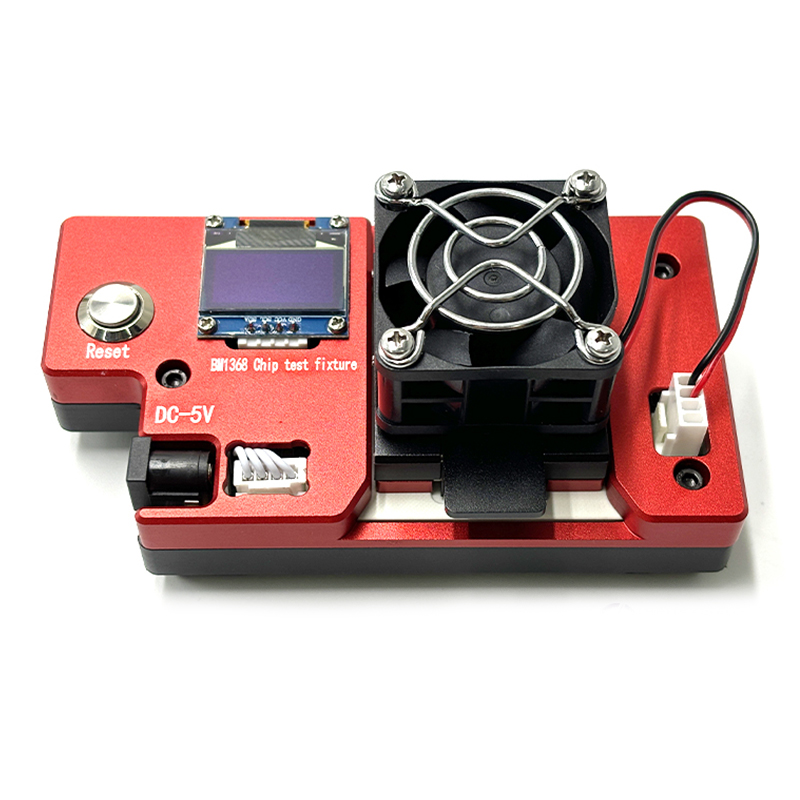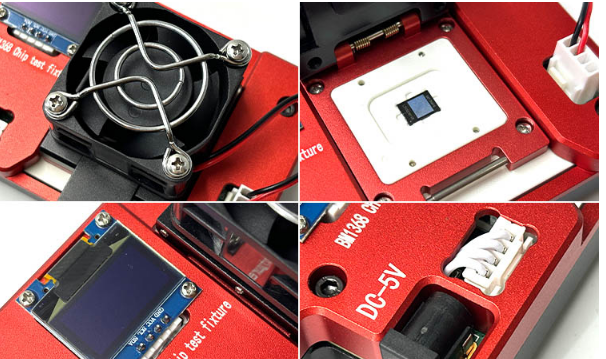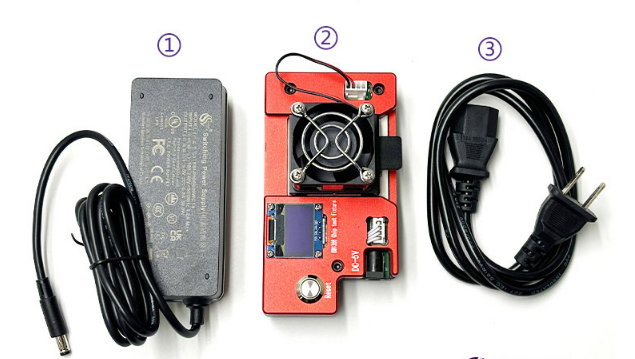What types of failures can BM1368 Series ASIC Chip Tester detect?
July 27, 2025
What Types of Failures Can BM1368 Series ASIC Chip Tester Detect?
Introduction: The Critical Role of ASIC Chip Testing in Cryptocurrency Mining
In the high-stakes world of cryptocurrency mining, ASIC (Application-Specific Integrated Circuit) chips are the backbone of efficient mining operations. The BM1368 series, powering some of the most widely used Bitcoin mining rigs, demands rigorous testing to ensure peak performance and longevity. However, like all electronic components, these chips are susceptible to various failure modes—some immediately apparent, others subtle yet devastating over time.
Enter the BM1368 Series ASIC Chip Tester, a specialized diagnostic tool engineered to detect, diagnose, and validate the health of BM1368 chips before they enter or re-enter production. Unlike generic multimeters or basic continuity testers, this device provides comprehensive, mining-specific diagnostics that help operators avoid costly downtime, reduce maintenance expenses, and maximize hash rate efficiency.
But what exactly can this tester detect? Let’s explore the key failure types it identifies and why each matters in real-world mining operations.
1. Power Delivery Failures (Voltage & Current Irregularities)
Why It Matters:
ASIC chips require precise voltage regulation to function correctly. A miner experiencing frequent crashes, inconsistent hash rates, or sudden reboots may be suffering from power-related chip failures.
What the BM1368 Tester Detects:
- Overvoltage/Undervoltage Damage – Excessive or insufficient power can degrade or destroy chip components. The tester checks whether the chip can handle standard operating voltages (typically ~0.6V–1.0V for BM1368 variants).
- Current Leakage – Faulty chips may draw abnormal current, indicating short circuits or damaged transistors.
- Power Rail Instability – Some chips appear functional but fail under load due to weak power delivery. The tester simulates operational conditions to expose these flaws.
Real-World Impact:
Mining farms using untested chips risk thermal runaway, reduced efficiency, or even catastrophic board failures. The BM1368 tester helps operators filter out power-compromised chips before installation.
2. Hash Core Malfunctions (Silicon Degradation & Defects)
Why It Matters:
The BM1368’s hash cores are its most critical components—responsible for performing SHA-256 calculations. A single defective core can cripple an entire mining board’s output.

What the BM1368 Tester Detects:
- Dead or Weak Cores – Some cores fail entirely; others produce errors intermittently. The tester runs diagnostic algorithms to verify each core’s functionality.
- Silicon Degradation – Repeated thermal cycling (heating/cooling) wears down ASICs over time. The tester identifies chips with declining performance before they cause instability.
- Manufacturing Defects – Even new chips can have latent defects. The tester screens for factory flaws that evade basic QA checks.
Real-World Impact:
A single faulty core can reduce a miner’s efficiency by 5–10% or more. By detecting degraded or defective hash cores early, operators can maximize uptime and ROI per chip.
3. Thermal Stress & Overheating Damage
Why It Matters:
ASIC miners operate under extreme thermal loads. Prolonged overheating accelerates electromigration—where heat degrades microscopic conductive pathways, eventually causing failure.
What the BM1368 Tester Detects:
- Thermal Throttling Issues – Some chips appear fine at idle but malfunction when heated. The tester applies thermal stress simulations to expose weaknesses.
- Heat-Induced Resistance Changes – Overheated chips may develop higher internal resistance, reducing efficiency.
- Solder Joint Cracking (BGA Failures) – Thermal expansion/contraction can crack solder connections. The tester detects intermittent connectivity issues caused by heat damage.
Real-World Impact:
Chips with undetected thermal damage shorten hardware lifespan and increase cooling costs. The tester helps operators salvage usable chips from overheated miners while discarding those too far gone.
4. Communication & Data Path Failures
Why It Matters:
ASIC chips rely on high-speed data buses to communicate with mining controllers. Faulty signal paths lead to rejected shares, stale work, or total miner failure.

What the BM1368 Tester Detects:
- Signal Integrity Issues – Checks for proper communication between the chip and host controller.
- Corrupted Firmware or Configuration Errors – Some chips boot but fail hashing due to firmware corruption.
- I/O Pin Failures – Bent or oxidized pins can disrupt data transfer. The tester verifies all critical signal lines.
Real-World Impact:
A miner with communication faults may appear online but mine at near-zero efficiency. The tester prevents such “ghost failures” from slipping into production.
5. Physical & Environmental Damage (Corrosion, ESD, Mechanical Wear)
Why It Matters:
Mining farms in humid or dusty environments face corrosion risks. Improper handling can also cause electrostatic discharge (ESD) damage.
What the BM1368 Tester Detects:
- Moisture & Corrosion Damage – Detects electrical leakage caused by oxidation.
- ESD-Induced Failures – Static electricity can fry sensitive transistors without visible signs.
- Bent or Broken Pins – Ensures all physical connections are intact.
Real-World Impact:
Operators in humid climates or those buying used chips risk installing corroded or ESD-damaged units. The tester acts as a final checkpoint before deployment.

Conclusion: Why Every Mining Operation Needs a BM1368 Tester
The BM1368 Series ASIC Chip Tester isn’t just another diagnostic tool—it’s a critical safeguard against the most common and costly failures in cryptocurrency mining. By detecting power irregularities, hash core malfunctions, thermal degradation, communication faults, and physical damage, it helps operators:
✅ Reduce Downtime – Catch failing chips before they crash entire miners. ✅ Extend Hardware Lifespan – Identify and replace degraded chips early. ✅ Improve ROI – Ensure every installed chip operates at full efficiency. ✅ Lower Maintenance Costs – Avoid repeated repairs by diagnosing root causes accurately.
For large-scale mining farms, repair centers, or resellers dealing in used ASICs, this tester pays for itself quickly by preventing wasted electricity, rejected shares, and unexpected hardware failures.
Final Recommendation:
If your operation relies on BM1368-powered miners (Antminer S19 series, etc.), integrating this tester into your maintenance workflow is a smart, cost-effective decision. Whether you’re validating new chips, troubleshooting used ones, or performing routine quality checks, the BM1368 Series ASIC Chip Tester delivers the precision diagnostics needed to keep your mining operation running at peak efficiency.
Invest in reliability—test before you mine.